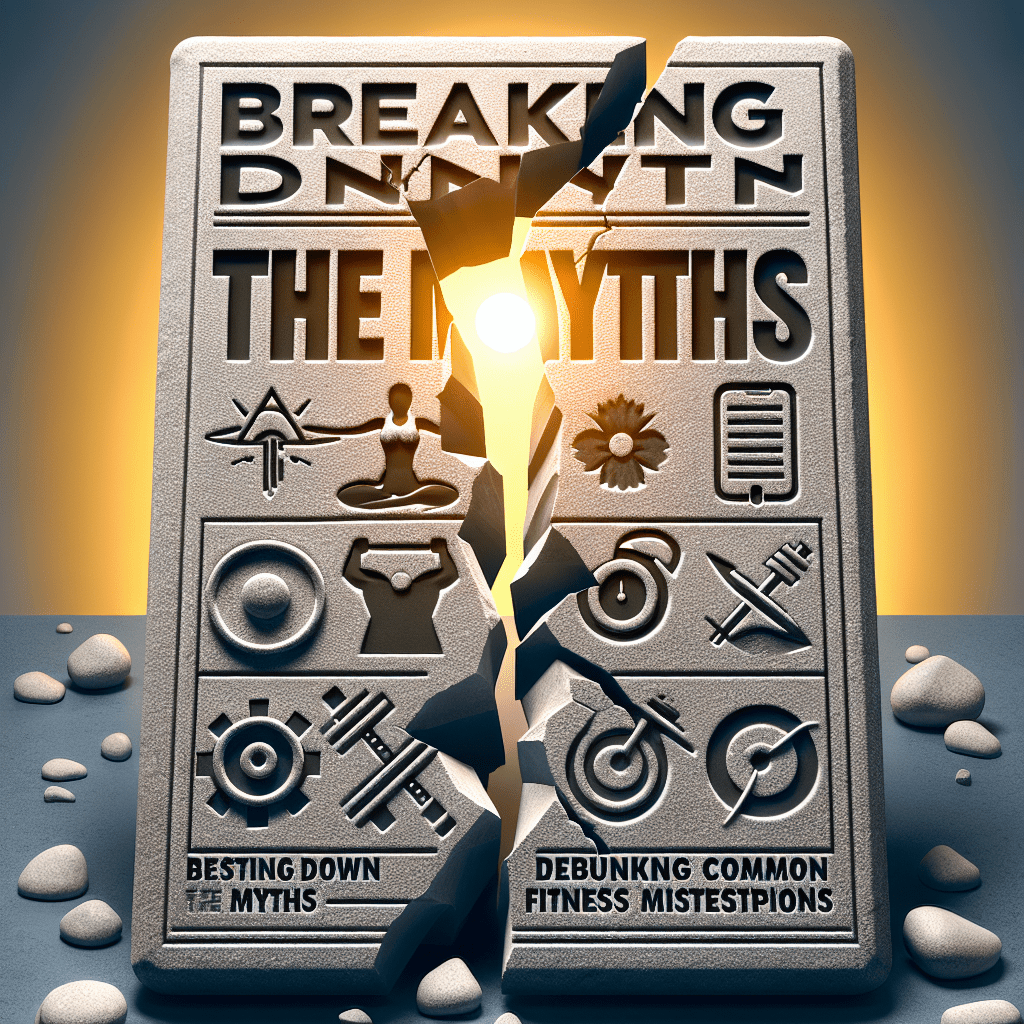Breaking Down the Myths: Debunking Common Fitness Misconceptions
When it comes to fitness, there are many myths and misconceptions that can lead to confusion and frustration. It’s important to separate fact from fiction in order to achieve your fitness goals effectively. In this article, we will debunk some of the most common fitness myths and provide you with the correct information to help you on your fitness journey.
Myth #1: You have to spend hours at the gym to see results
Many people believe that in order to see results, you have to spend hours at the gym every day. While consistency and dedication are important, the length of your workouts is not necessarily a determining factor in your success. In fact, research has shown that shorter, more intense workouts can be just as effective, if not more so, than longer workouts. The key is to focus on quality over quantity and to listen to your body’s needs.
Myth #2: Cardio is the best way to lose weight
While cardio is an important component of any fitness routine, it is not the only way to lose weight. In fact, strength training can be just as effective, if not more so, in helping you reach your weight loss goals. Strength training builds lean muscle mass, which boosts your metabolism and helps you burn more calories even at rest. Incorporating a mix of cardio and strength training into your routine is the most effective way to achieve weight loss and overall fitness.
Myth #3: You can spot reduce fat
Many people believe that they can target specific areas of their body for fat loss through exercises like crunches or leg lifts. However, spot reduction is a myth. In reality, fat loss occurs throughout the body as a whole, not in specific areas. The best way to reduce body fat is through a combination of a healthy diet, regular exercise, and overall fat loss. Focus on building lean muscle mass and burning calories through a well-rounded fitness routine rather than trying to spot reduce fat.
Myth #4: You have to eat a low-fat diet to be healthy
For years, the low-fat diet trend was popular as a way to promote heart health and overall wellness. However, research has shown that not all fats are created equal, and some fats are actually essential for optimal health. Healthy fats, such as those found in avocados, nuts, and olive oil, are important for brain function, hormone production, and overall health. It’s important to focus on a balanced diet that includes a mix of healthy fats, carbohydrates, and proteins to support your fitness goals.
Myth #5: You have to drink protein shakes to build muscle
Protein shakes have become a popular supplement in the fitness world, with many people believing that they are necessary for building muscle. While protein is an important nutrient for muscle growth and recovery, it is possible to meet your protein needs through whole foods alone. In fact, whole food sources of protein, such as chicken, fish, eggs, and legumes, offer a wider range of nutrients and benefits than protein powders. Protein shakes can be a convenient option for post-workout recovery, but they are not essential for muscle building.
Conclusion
By debunking these common fitness myths, we hope to provide you with the knowledge and information needed to make informed decisions about your fitness journey. Remember that fitness is a personal journey, and what works for one person may not work for another. It’s important to listen to your body, set realistic goals, and prioritize consistency and balance in your approach to fitness. By focusing on sustainable habits and a holistic approach to wellness, you can achieve your fitness goals and lead a healthier, happier life.
FAQs
Q: How often should I work out to see results?
A: The frequency of your workouts will depend on your individual goals and fitness level. It’s generally recommended to aim for at least 150 minutes of moderate-intensity aerobic exercise per week, along with strength training exercises at least two days per week. Listen to your body and adjust your routine as needed to achieve the best results.
Q: What’s the best way to stay motivated on my fitness journey?
A: Staying motivated can be a challenge, but setting realistic goals, tracking your progress, and finding activities you enjoy can help you stay on track. Surround yourself with a supportive community, celebrate your successes, and remember that progress takes time. Consistency is key, so focus on small, sustainable changes rather than quick fixes.
TIP:
Remember to prioritize rest and recovery in your fitness routine. Adequate sleep, hydration, and rest days are all crucial for muscle repair, recovery, and overall well-being. Listen to your body’s signals and give yourself the time and space you need to recharge and rejuvenate. Your body will thank you in the long run.
#Breaking #Myths #Debunking #Common #Fitness #Misconceptions
